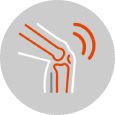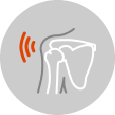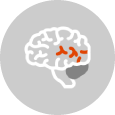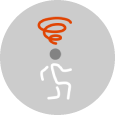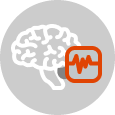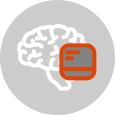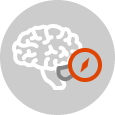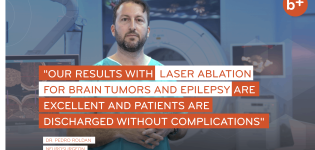CAUSES OF EPILEPSY
As it is a complex condition, the causes of epilepsy are diverse, some identifiable and others still unknown:
Genetics
Some types of epilepsy, associated with genetic changes, can be hereditary. However, genetic epilepsy can also arise without a family history.
Head trauma
Brain injuries secondary to severe trauma can trigger epilepsy.
Injuries to the brain structure
Brain tumours, arteriovenous malformations, cavernous angiomas, cerebrovascular accidents, developmental malformations of the cerebral cortex... are potential causes of epilepsy, which affect brain functions and trigger seizures.
Infections
Diseases such as meningitis and encephalitis (viral or bacterial) and some parasitic infections can cause epilepsy, underscoring the relationship between brain health and immunity.
Injuries before Birth
Factors affecting the foetus, such as maternal infections or oxygen deficiency, can result in brain damage, increasing the risk of epilepsy.
Metabolic
Epilepsy can manifest as a central feature of metabolic disorders such as porphyrias.
Immune
Autoimmune disorders that affect the central nervous system can trigger epileptic seizures, pointing out the interconnection between the immune system and brain health.
Unknown causes
Despite advances in diagnosis, in many cases specific causes of epilepsy cannot still be defined, which highlights the complexity of this condition. In our private clinic, with expert professionals, we approach each case in a personalised way, recognising the diversity of factors that contribute to epilepsy and working towards a better understanding and management of this condition. Connect with us to explore treatment and support options tailored to your individual needs.


